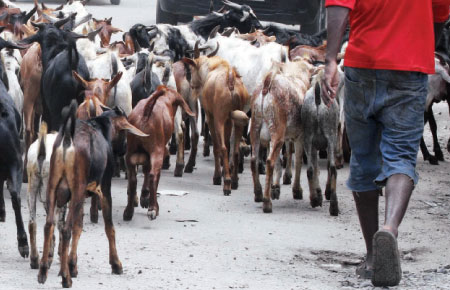×
The Standard e-Paper
Stay Informed, Even Offline
 |
| A herd of goats fight for the right of way with motorists on a busy city road |
By HUDSON GUMBIHI and PKEMOI NG’ENO
NAIROBI, KENYA: When a female dog is on heat, just know it is supposed to be many paws away from other canines.